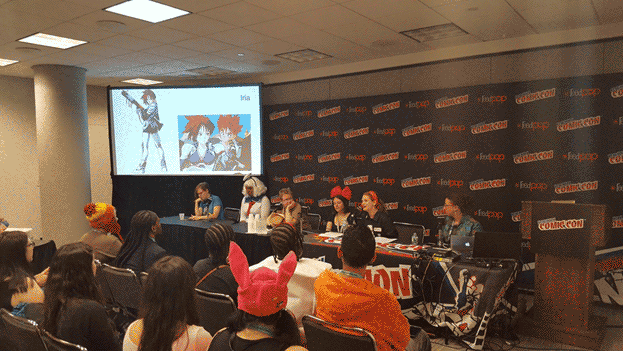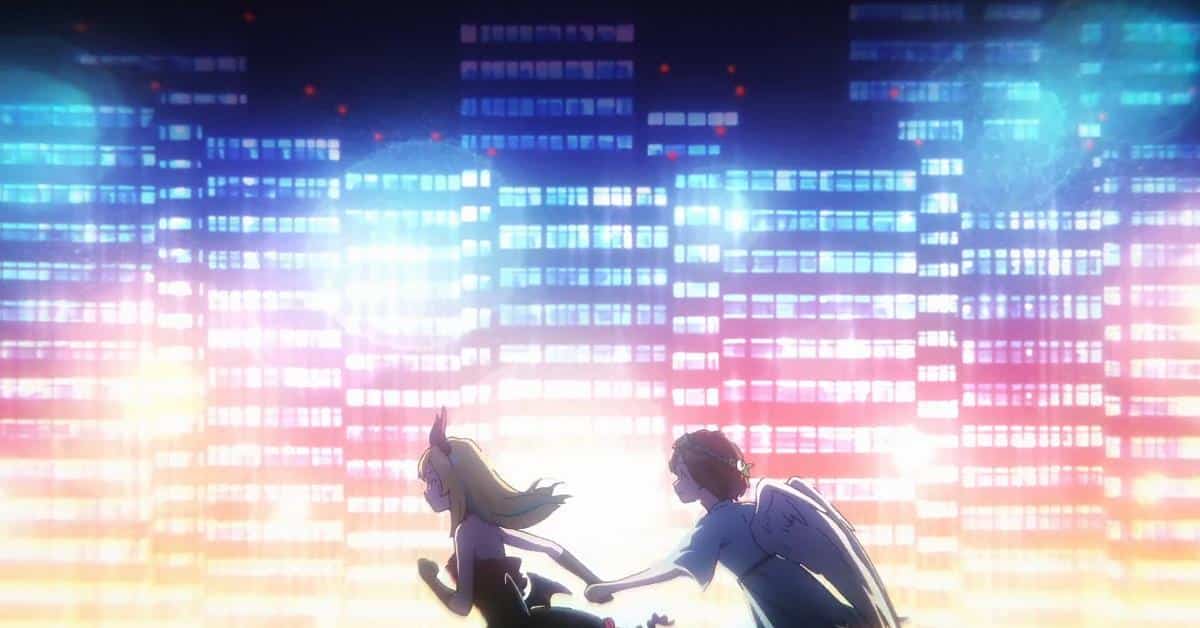One of the interesting things about this year’s New York Comic Con is the breadth of topics being addressed in the panels. In addition to the usual studio discussions and next big thing announcements, several of the panels scheduled are tackling tougher issues like diversity and representation in comic books and the industry.
Anime for Feminists was one such panel, featuring Valerie Acklin, Jessikah Chautin, Pam Cora, Marissa Lieberman, Jenny McKeon, and Nola Thacker discussing what makes an anime feminist and what to do when a series turns problematic.
The session began with the panelists introducing themselves and how they got into anime, including the series that made them start to think of the genre through a feminist lens. All of the panelists agreed on one thing: as children, they were typically (consciously or not) drawn to anime series that made them feel empowered. Cora specifically remembered as a child loving comics and identifying with strong male characters such as Batman, until she was introduced to Princess Jellyfish, a series whose characters’ fictional high school life she felt correlated with her own. That idea became central to the panel discussion: representation is important. It’s hard to enjoy something when you can’t see yourself in it.
There was some discussion on what to do about your “problematic favs,” or series that you love, but that can also be problematic. In this, the panel agreed, context is king. It’s important to look at the series as a whole and judge it that way. One example that was given was Fushigi Yuugi, which deals questionably with the issue of rape, but whose characters include a kickass transgender woman, among other positives. Overall, fans need to be open to the idea that it’s okay to like problematic series as long as you accept that they aren’t above criticism just because you enjoy them.
Another issue discussed was that of fan service. Fan service is something that spans almost all mediums and genres, but anime has been particularly colored by it. “People have an image of anime as always having fan service, which isn’t true,” McKeon opined. Often times, fan service can make people dismiss a series, which everyone agreed in a mistake. It’s important sometimes, specifically when someone is recommending a series to you, to try and move past the superficial layer of fan service and get at what’s at the heart of it. It’s also important to remember that everyone’s definition of fan service is different and to stay open minded. Again, context.
If you’re looking for feminist-leaning anime, here are some the panel suggested:
- Revolutionary Girl Utena – An oldie, but goody. The manga and anime are slightly different from one another and they both can be problematic at times, but the series does a good job of deconstructing the typical fairy tale trope.
- Princess Mononoke/Kiki’s Delivery Service – Anything Hayato Miyzaki, really. The master himself once said in an interview that he has created a lot of movies to inspire his granddaughter.
- Sakura Quest – A series about a group of working adult women and their struggle to bring a town back to prosperity. The panel described it as “Parks and Rec for anime.”
- Little Witch Academia – A story about girls who are training to be witches at a board school. The characters are all unique and have strong female friendships; they aren’t pitted against one another as the boarding school setting might suggest!
- Princess Jellyfish – A cute series featuring female characters who embrace their quirks and are accepted for who they are. This isn’t your typical ugly duckling story.
- Kino’s Journey – A woman and her magical, talking motorcycle go on adventures. She isn’t tied down and goes where she pleases. But speaking of problematic favs, the manga used gender-neutral pronouns for the main character, where the anime does not.
- Vandread – This is a haram anime, but it does a good job of turning that trope on its head. Basically, women and men have been living on different planets for 3 generations, so queer relationships are the norm, which is an interesting premise to begin with. One panelist could not recommend this show enough.







